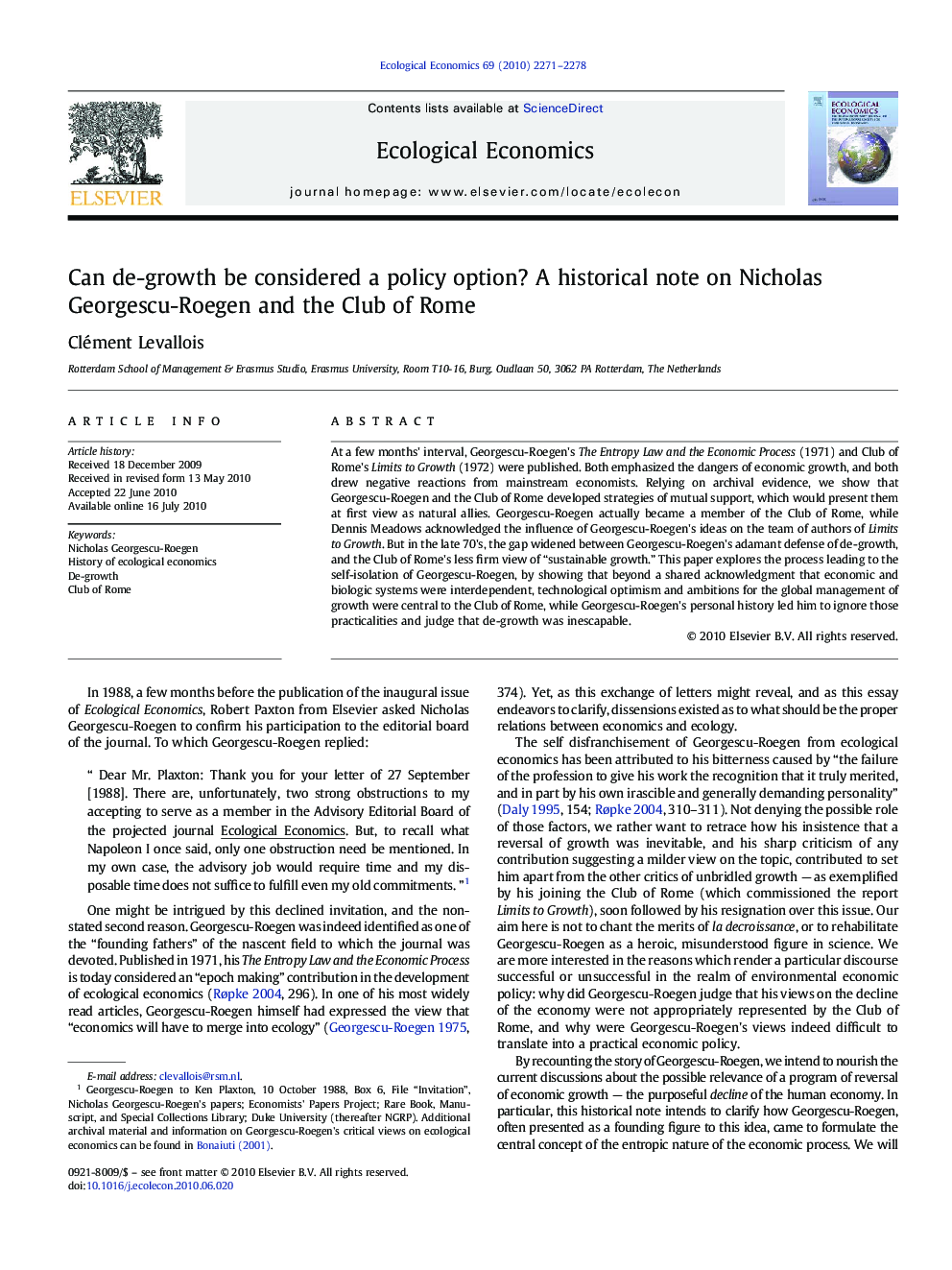| Article ID | Journal | Published Year | Pages | File Type |
|---|---|---|---|---|
| 5050736 | Ecological Economics | 2010 | 8 Pages |
Abstract
At a few months' interval, Georgescu-Roegen's The Entropy Law and the Economic Process (1971) and Club of Rome's Limits to Growth (1972) were published. Both emphasized the dangers of economic growth, and both drew negative reactions from mainstream economists. Relying on archival evidence, we show that Georgescu-Roegen and the Club of Rome developed strategies of mutual support, which would present them at first view as natural allies. Georgescu-Roegen actually became a member of the Club of Rome, while Dennis Meadows acknowledged the influence of Georgescu-Roegen's ideas on the team of authors of Limits to Growth. But in the late 70's, the gap widened between Georgescu-Roegen's adamant defense of de-growth, and the Club of Rome's less firm view of “sustainable growth.” This paper explores the process leading to the self-isolation of Georgescu-Roegen, by showing that beyond a shared acknowledgment that economic and biologic systems were interdependent, technological optimism and ambitions for the global management of growth were central to the Club of Rome, while Georgescu-Roegen's personal history led him to ignore those practicalities and judge that de-growth was inescapable.
Keywords
Related Topics
Life Sciences
Agricultural and Biological Sciences
Ecology, Evolution, Behavior and Systematics
Authors
Clément Levallois,
